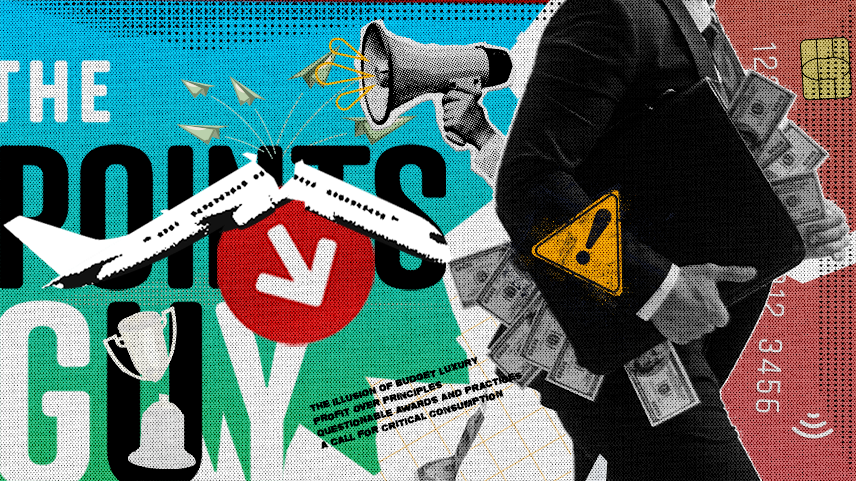Blog
The Truth Behind The Points Guy: A Closer Look at Brian Kelly’s Empire

In the world of travel hacking and credit card points, Brian Kelly, better known as “The Points Guy” (TPG), has become something of a legend. Since launching his platform in 2010, Kelly has been the go-to guru for those looking to travel in luxury without the hefty price tag. But as we take a closer look at the empire behind the man, a more complex picture emerges, one that might make his followers question the impartiality of the advice they’ve been following.
The Rise of The Points Guy
Brian Kelly started TPG as a humble blog, sharing his insights on maximizing credit card rewards and frequent flyer miles. His promise was enticing: showing the average American how to travel first class on an economy budget. Over the years, TPG has grown into a juggernaut, with a team of over 40 employees and a monthly readership exceeding 8 million.
The Cozy Ties That Bind
However, Kelly’s close relationship with the credit card and hospitality industries has cast a shadow over the authenticity of his advice. His platform’s recommendations come into question when considering his personal invitations to high-profile events and mentions in corporate earnings calls. This coziness suggests a potential conflict of interest, especially when you learn about Kelly’s own start in the points game, which involved charging extravagant amounts to his credit card, a far cry from the budget-savvy strategies he promotes.
A Shift Towards Profit
The acquisition of The Points Guy by Bankrate in 2012 for $20 million, and subsequently by Red Ventures in 2017, marked a significant shift. Red Ventures, a company specializing in “intent-based media,” focuses on directing potential spenders to their partners. This model, described by some as “all about profit maximization,” raises concerns about the pressure on TPG journalists to favor products that bring in the most revenue.
Affiliate Links and Revenue
TPG’s primary revenue stream comes from affiliate marketing, with the site’s credit card offers being organized by compensation. This has proven to be incredibly lucrative, with TPG generating over $50 million in revenue in 2019 alone. However, this reliance on affiliate links means that the advice offered may not always be in the reader’s best interest but rather what’s most profitable for TPG.
Questionable Awards
The TPG Awards, established in 2018, have also been a point of contention. These awards often go to companies with which TPG has established business relationships, such as Chase, Capital One, and American Express. This pattern suggests that the awards may be more about reinforcing profitable partnerships than genuinely recognizing industry innovation.
The Bottom Line
Brian Kelly’s The Points Guy, under the guise of democratizing luxury travel, has morphed into a cautionary tale of what happens when profit eclipses principle. The revelations about TPG’s cozy relationships with credit card companies, the prioritization of affiliate link revenue over genuine advice, and the questionable integrity of its awards system strip away any veneer of altruism. Followers of TPG must confront a harsh reality: they’ve been sold a dream that, at its core, serves the interests of a lucrative empire more than those of the budget-conscious traveler. In the end, The Points Guy’s narrative is less about lifting the average Joe to first-class status and more about leveraging trust for profit. It’s a stark reminder that in the world of points and miles, skepticism should be your constant travel companion.

